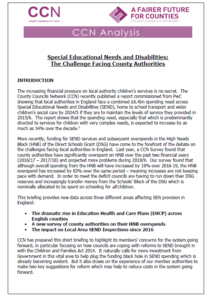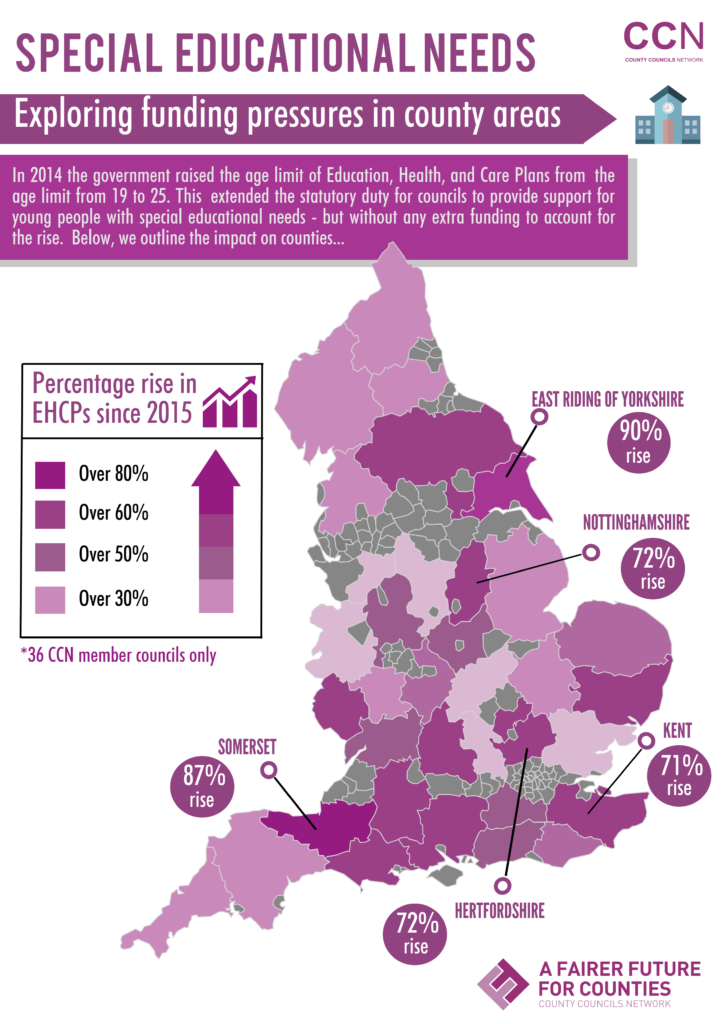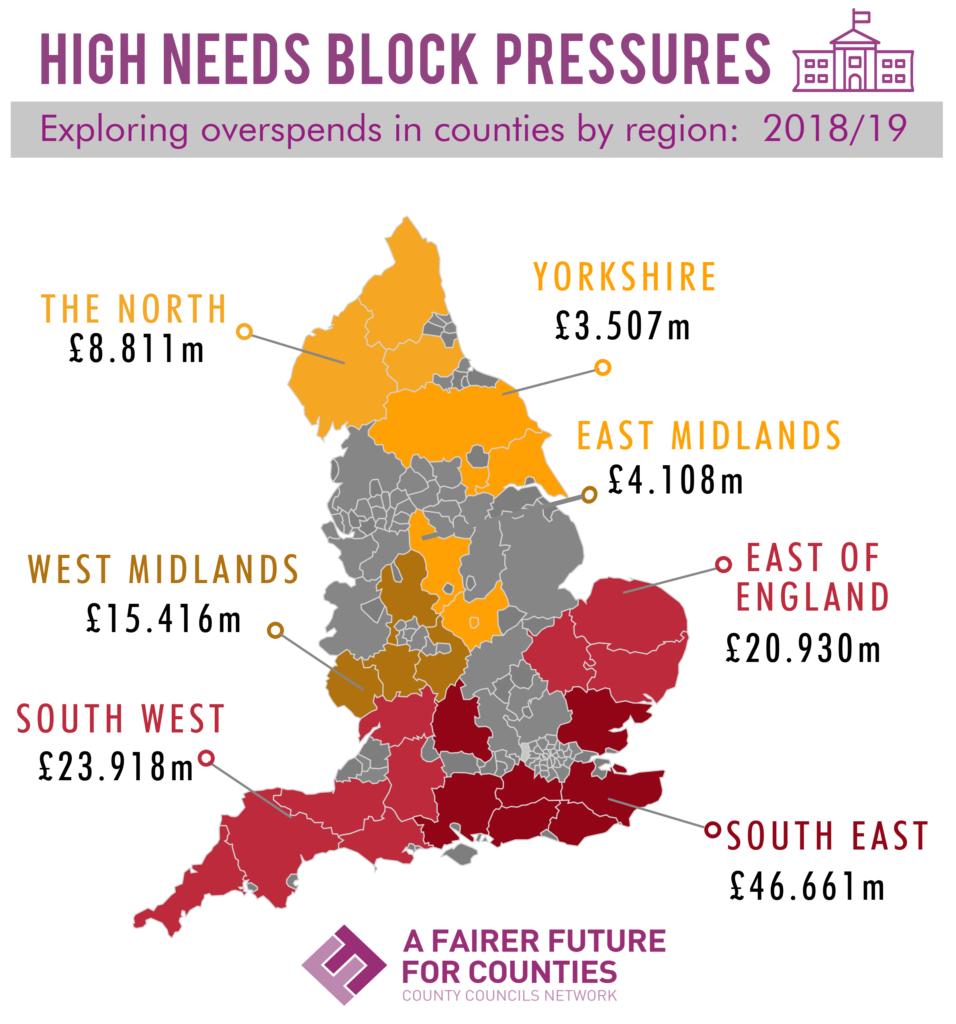
CCN Latest News, CCN News 2019 | 19 July 2019

The County Councils Network (CCN) which compiled the figures, says the 36 councils it represents have seen a rise of 46% – almost 10,000 extra each year in the number of young people being granted EHCPs since 2014, creating substantial extra costs for those councils. Some areas have seen increases of 90%, which has led to huge overspends in budgets for SEN, which has led to costs ‘spiralling out control’ and impacting on the quality of services.
 Click the image below or here to download a brand new analysis on SEN issues within county areas.
Click the image below or here to download a brand new analysis on SEN issues within county areas.
This explosion in EHCPs is leading to councils seeing record overspends in the funding for SEN services. A new analysis carried out for CCN shows that 27 county local authorities recorded a combined overspend of £123m in just twelve months in 2018-19 on their high needs block, which is a specific grant for children with special educational needs.
With those councils already facing a cumulative funding gap of £21.5bn over the next six years, county leaders warn that these continued overspends could ‘break’ their budgets.
CCN argues that government must provide funding to compensate for these reforms in the Children and Families Act. The Act, which was introduced in 2014, raised the age limit from 19 to 25 which extended the statutory duty for councils to provide support for young people with special educational needs. These plans outline the resources each individual needs from the local authority, which has led to a larger financial burden with the extension of the age limit.
In view of these stark figures CCN has consulted with its member councils to find out what is driving these dramatic increases for a new report published today. Local authorities argue that it is the change in legislation that has fuelled these overspends. Nationally, the number of children or young people granted an EHCP has dramatically increased by 116,884 over the last five years – from 240,183 in 2015 to 353,995 in 2019. Councils fear numbers are likely to continue to rise for the next few years as the reforms continue to benefit more young people turning 19 who would previously have left the system.
The 36 county local authorities which the CCN represent makes up the bulk of this increase ––29,322 in the last two years alone. Some areas have experienced huge rises. The number of children granted an EHCP in East Riding of Yorkshire has increased by 90%. In Somerset, the figure is 87%; whilst Hertfordshire and Nottinghamshire saw a rise of 72%, and Kent 71% since the legislation was changed.

CCN argues that the unfunded rise in young people receiving EHCPs is impacting on the quality of services, with local authorities’ budgets being stretched due to the extra burden.
In the last two years, the number of inspections of a councils’ SEND department from the Care Quality Commission and Ofsted which resulted a written warning increased dramatically over the last three years – from 27% of all inspections in 2016/17 to 63% of all inspections in 2017/18.
County leaders have called on the new government to recognise the additional pressures on budgets that the change in legislation has led to and to provide an immediate injection of funds for SEN to ease the burden on councils next year.
In the longer term, county leaders argue that the government must provide sustainable and long-term funding for councils in the Spending Review.
 Cllr Carl Les, County Councils Network children’s services and education spokesman, and leader of North Yorkshire County Council, said:
Cllr Carl Les, County Councils Network children’s services and education spokesman, and leader of North Yorkshire County Council, said:
“The government’s reforms in the Children and Families Act five years ago were well intentioned and we support increasing the age range and the extra parental choice. However, these reforms have led to additional demand which has created a financial crisis for some local authorities, with huge rises seeing costs spiral out of control and threatening to break our budgets.
“County authorities already face a funding black hole of £21.5bn over the next five years and these SEN funding pressures are compounding an increasingly bleak picture. As a result, if we continue to overspend on SEN as we have done, many councils in the future may be unable to set a balanced budget whilst others will have to reduce other service-specific budgets further which would run the risk of not being able to deliver statutory duties.”
“As this huge increase in demand is unfunded, the cost burden has come from other service areas. Local authorities, already grappling with yearly cuts, have had to ask to shift funding from mainstream pupils, and reduce preventive services in the community – a short-term but necessary approach that will only store up problems for the future.
“It is clear that the current system is not working effectively when nearly two-thirds of councils nationwide over the past year are not reaching the expected level of service in their special educational needs departments. With demand projected to rise for the foreseeable future, it is clear that councils will continue to overspend and the quality of service will be compromised.
“This is why we are urging the new government to urgently inject funding into SEN to help ease these pressures, and acknowledge that the extra demand over the last five years must be funded. We call on the new ministerial team at the Department for Education make this one of their early priorities when they are in post.”

Notes to editor
© 2024 County Councils Network | Credits | Site map | Cookies | Privacy Policy.